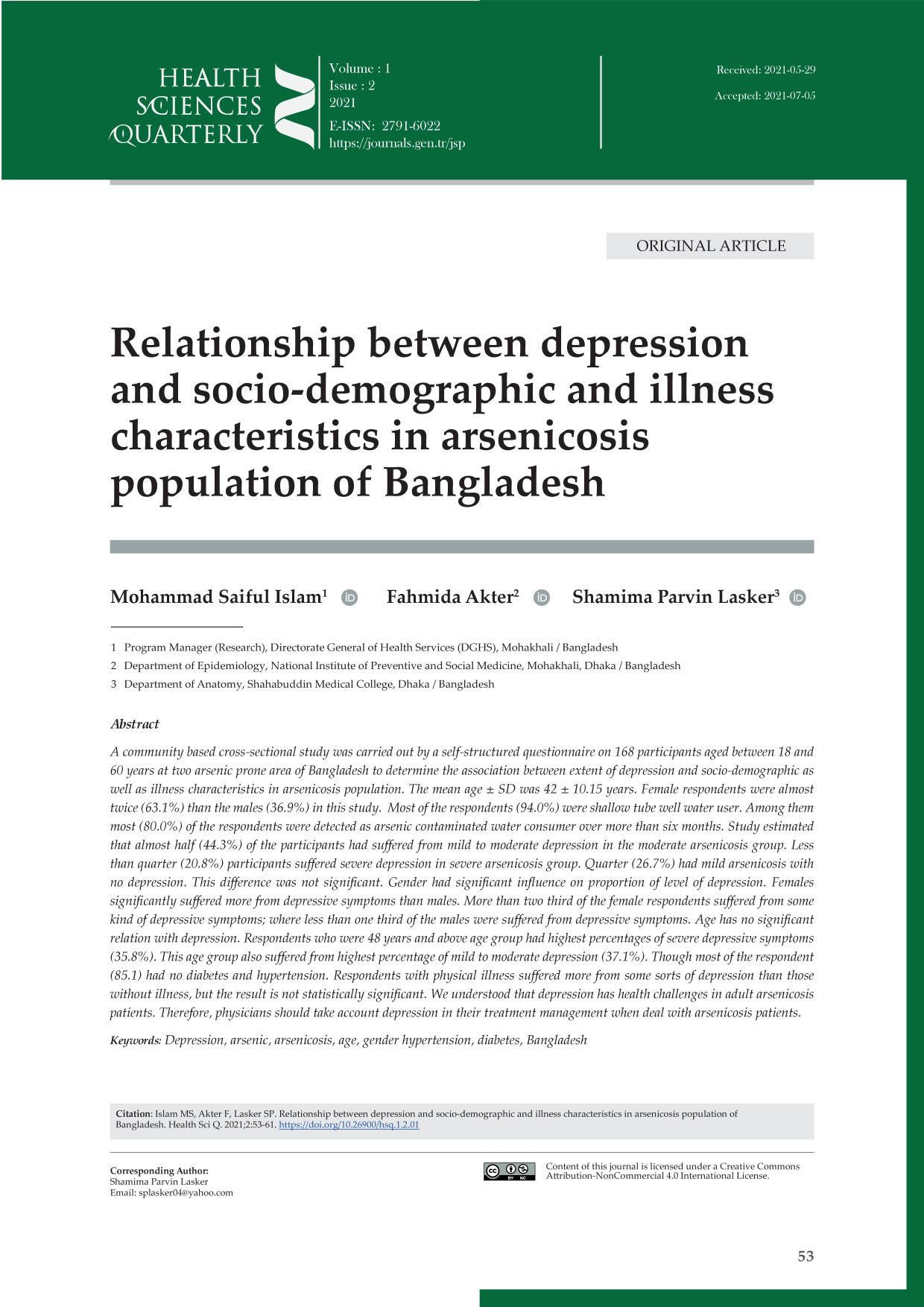
Relationships between depression and socio-demographic & illness characteristics in arsenicosis population of Bangladesh PDF
2021·0.8841 MB·other
Most books are stored in the elastic cloud where traffic is expensive. For this reason, we have a limit on daily download.
Preview Relationships between depression and socio-demographic & illness characteristics in arsenicosis population of Bangladesh
Description:
A community based cross-sectional study was carried out by a self-structured questionnaire on 168 participants aged between 18 and 60 years at two arsenic prone area of Bangladesh to determine the association between extent of depression and socio-demographic as well as illness characteristics in arsenicosis population. The mean age ± SD was 42 ± 10.15 years. Female respondents were almost twice (63.1%) than the males (36.9%) in this study. Most of the respondents (94.0%) were shallow tube well water user. Among them most (80.0%) of the respondents were detected as arsenic contaminated water consumer over more than six months. Study estimated that almost half (44.3%) of the participants had suffered from mild to moderate depression in the moderate arsenicosis group. Less than quarter (20.8%) participants suffered severe depression in severe arsenicosis group. Quarter (26.7%) had mild arsenicosis with no depression. This difference was not significant. Gender had significant influence on proportion of level of depression. Females significantly suffered more from depressive symptoms than males. More than two third of the female respondents suffered from some kind of depressive symptoms; where less than one third of the males were suffered from depressive symptoms. Age has no significant relation with depression. Respondents who were 48 years and above age group had highest percentages of severe depressive symptoms (35.8%). This age group also suffered from highest percentage of mild to moderate depression (37.1%). Though most of the respondent (85.1) had no diabetes and hypertension. Respondents with physical illness suffered more from some sorts of depression than those without illness, but the result is not statistically significant. We understood that depression has health challenges in adult arsenicosis patients. Therefore, physicians should take account depression in their treatment management when deal with arsenicosis patients.
See more
The list of books you might like
Most books are stored in the elastic cloud where traffic is expensive. For this reason, we have a limit on daily download.
